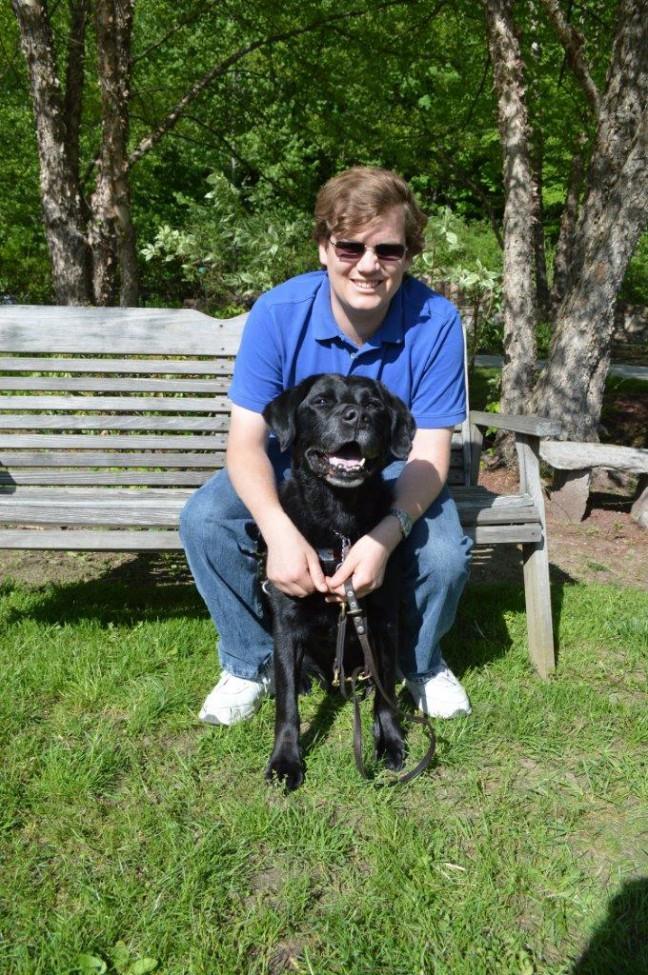Getting around on campus is hard for everyone, especially using a cane, said Andrew Hasley, a blind University of Wisconsin graduate, which prompted him to apply for his service dog, Fletcher.
Hasley started looking for a service animal during his senior year of high school, comparing the experience to researching colleges.
“It’s actually a similar process to other things … It’s like applying for anything else,” Hasley said. “They want to know about you, and they actually come out and visit you.”
He applied for a dog from Guiding Eyes for the Blind, a service animal school in New York, after completing his first year of school at UW.
Guiding Eyes followed Hasley around on campus and at his home to see the environment his dog would be living in, he said. Six months later, Hasley was admitted to take a month-long class in New York on how to train a service dog, he said.
While he has not experienced many barriers using a service dog on campus, Hasley said there is a distraction factor.
Struggling with stress and anxiety, Delaney Sanders, a sophomore at UW, decided to look into getting a therapy dog. Taking on the responsibility of a dog, as well as the relaxing benefits of having a companion to come home to every night, seemed like a healthy and helpful option.
Although her leasing agreement did not allow dogs, her therapist was able to write her a note stating she had health reasons for owning a therapy dog.
“All the housing complexes that don’t allow dogs have to accommodate for you if you have some sort of anxiety, stress or any other disadvantage,” Sanders said. “If you have something that a doctor prescribes you, then they have to do everything to accommodate you.”
In order to get permission to allow her dog, Rory, in the housing complex, Sanders had to first take a note to the owners of the house. The owners allowed the dog as long as she would pay for any damages it caused and all of the residents of the house approved, Sanders said.
The experience overall has been helpful and therapeutic, but taking care of Rory was a big responsibility to take on, Sanders said.
“You’re on your own, you’re thinking about a whole other life besides yours,” Sanders said. “[Dogs] aren’t just something to cuddle with at the end of the day, they have a life, and that is important to think about before committing to getting a dog.”
Service and therapy animals are welcome on campus, but there are requirements for them. The animals must be vaccinated, licensed, leashed and presented with an annual clean bill of health, according to the University of Wisconsin’s Americans with Disabilities Act policies.
When people look at someone with a service dog, they only see the dog, Cathleen Trueba, Director at UW McBurney Disability Resource Center, said.
It can be a distraction from the fact that there is a person accompanying the dog, Trueba said.
One of the biggest problems regarding service animals today is people using fraudulent service dogs, Hasley said.
Because there is no federal identification for a service dog, anyone can buy a harness or paperwork online and use it to pretend their pet is a service dog, Hasley said.
“It’s really a problem … When that dog misbehaves, when that dog hurts somebody, when that dog damages a business proprietor’s property because it’s poorly trained, there’s backlash culturally,” Hasley said. “There’s social backlash, and that’s of the bigger worries [in the service dog community].”













